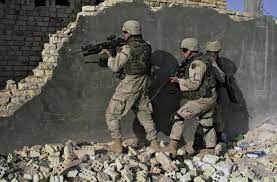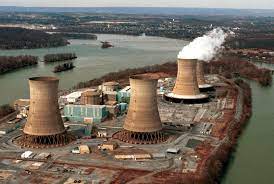On October 11, 2002, the United States was on the brink of a significant military conflict as it prepared to engage in the Iraq War. This war, which would officially begin in March 2003, marked a turning point in American foreign policy and had far-reaching implications for the region and the world.
The Iraq War was rooted in a complex web of political, military, and economic factors. The primary reason cited by the U.S. government for the invasion was the belief that Iraq, under the leadership of Saddam Hussein, possessed weapons of mass destruction (WMDs) and posed a threat to global security. Additionally, there were concerns about Saddam Hussein's oppressive regime and alleged support for terrorism.
The build-up to the Iraq War was marked by intense debate and controversy. The U.S. government, led by President George W. Bush, made a case for military intervention based on intelligence reports that suggested the existence of WMDs in Iraq. However, these claims would later prove to be inaccurate, leading to significant criticism and questioning of the decision to go to war.
On October 11, 2002, the U.S. Congress passed a joint resolution authorizing the use of military force against Iraq. This resolution, known as the Authorization for Use of Military Force Against Iraq Resolution of 2002, granted President Bush the authority to use all necessary means to disarm Iraq and remove Saddam Hussein from power.
The Iraq War officially began on March 20, 2003, when a U.S.-led coalition launched a military invasion of Iraq. The initial phase of the war involved a swift and overwhelming display of military power, as coalition forces quickly toppled the Iraqi government and captured major cities. However, the subsequent occupation and stabilization efforts proved to be much more challenging and costly than anticipated.
The Iraq War had significant consequences for both the United States and Iraq. The conflict resulted in the deaths of thousands of American and Iraqi soldiers, as well as countless civilian casualties. The war also led to the displacement of millions of Iraqis and created a power vacuum that fueled sectarian tensions and gave rise to extremist groups such as ISIS.
The war also had profound political and economic implications. The removal of Saddam Hussein's regime created a power vacuum that led to a protracted period of instability in Iraq. The U.S. occupation faced resistance from various factions, and efforts to establish a stable and democratic government proved difficult.
The Iraq War also strained U.S. relations with the international community, particularly with countries that opposed the invasion. The war was seen by many as a unilateral action by the United States, which led to strained diplomatic relations and a loss of trust among key allies.
In the years following the invasion, the United States faced criticism and scrutiny for its decision to go to war in Iraq. The absence of WMDs and the failure to find evidence of an imminent threat undermined the credibility of the intelligence used to justify the invasion. The war also sparked a broader debate about the ethics and legality of preemptive military action.
The Iraq War remains a highly contentious and debated topic to this day. It continues to shape U.S. foreign policy and influence perceptions of American military intervention. The war's legacy serves as a reminder of the complexities and challenges of modern warfare, and the need for careful consideration and assessment of the consequences before engaging in armed conflict.






